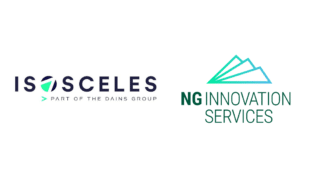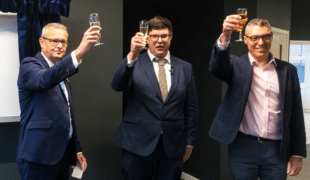Every business management theory book, since the emergence of spreadsheets, highlights the importance of budgeting and planning but I am still surprised at how few small and medium sized companies budget or plan sufficiently.
There is nothing more likely to accelerate business success than a coherent and accurate financial plan. On the flip side, nothing is more likely to jeopardise your business than the lack of a strong plan.
Why then is it that smaller companies don’t invest the effort in budgeting and planning?
- Perhaps the management teams are so overworked and overstretched, with the here and now, that they do not have the thinking capacity to take time out to prepare the 3-year plan and budget.
- Maybe they lack the confidence and conviction to believe they really can identify the true drivers of the business, to the extent that they can plan with any degree of certainty.
- Alternatively they may believe they are so close to the market and customers that they do not need to distil market intelligence from data, but can use commercial instinct and existing customer relationships to give them insight.
- Perhaps they believe their speed of growth and change requires a nimbleness and adaptability, that detailed business modelling simply cannot provide.
It doesn’t need to be a big investment of time or resources
My guess is that smaller businesses do not feel that the investment of stopping the business to review their operations gives a sufficient return, because the issues that challenge businesses are perceived to be too difficult to manage and predict.
Planning and budgeting does not need to be the large investment of time that business managers perceive it to be.
Little and often!
In my experience companies tend to over complicate the modelling of their business. They make budgeting an annual one-off event requiring everyone in the business to stop what they are doing to support the process with the end result being a gargantuan company budget. The problem with this is that the model takes two to three months to produce and is often out of date four weeks after the start of the fiscal year.
For me the value of budgeting and planning is to do it little and often. By this I mean develop a relatively simple model with simple and easy to develop variables and assumptions. Use tools that allow business people to model the business without a Microsoft Excel guru sat next to them. Keep the plan updated and alive.
You don’t need to spend a fortune on a bespoke tool
The evolution of modelling and business information tools along with the data visualisation offered with the latest versions of Microsoft Office make easy to use and simple models a reality for any sized business. The collaboration offered by tools such as Google Apps and Microsoft Office 365 make sharing and collaborating during the budgeting process easier than ever.
It’s more than just the financials
The other mistake I frequently see companies make is to look at financials alone. Accurate budgeting and planning models cannot be produced unless up-to-date data sales pipeline information from the CRM (customer relationship management) system is also analysed. For me the perfect forecasting model takes real-time downloads of CRM data, incorporates current management information and applies simple assumptions on a frequent basis to produce a constantly up-to-date model.
The advantages of good business planning
To produce an accurate 3-year plan it is necessary to:
- work forwards from where the business is today, determining how it can grow from this base, and
- from market analysis, set an expectation of where the company wants to be tomorrow and work backwards.
The advantages of a good business planning process is:
- It forces the management team to understand the cost drivers of the business to date (this is also a backward looking process) and look for trends and reasons as to why activities attract and drive certain costs.
- It sets expectations, based on a realistic analysis of the market opportunity, as to the size of the market opportunity which the business should rightfully be able to grab.
- It quantifies the various costs and investments necessary to go after and deliver this size of opportunity.
- It authenticates whether the business has the cash and the resources to deliver the expectation.
- If resources are not available either expectations need to be reset or alternative sources of resources (e.g. investment) should be sought.
Frequent and regular iterations keep it alive
The real value of planning only comes with a regular reconciliation of what actually happened with what you expected, and the identification of reasons for the difference.
If those reconciling items can then be fed into another planning iteration, then the next version will be a lot more accurate. Because you are not having to recreate the budget models from scratch, the work involved with these constant reiterations should be minor.
External experts can add REAL value
At Isosceles we have the financial planning skills and experience of working in many different types of businesses.
- We have excellent Excel expertise as well as data visualisation templates – making our models easy for the non-Accountant to use.
- We provide our clients with a variable planning and budgeting resource – getting what they need, when they need it.
- We have experience of fast growing, successful companies and we can share our knowledge of a variety of business models and significantly reduce the time it takes to pull the budget and the plan together.
- We can provide an honest and frank assessment of your current position to create an objective and informed analysis of where you are, deploying all of our skills and experience to validate where you want to be tomorrow.
We are very happy to help
We have a list of typical KPIs for different vertical industries which we would be happy to share with you to get you started.
If you are interested please give Lloyd Bristow a call on 01784 770880 or drop him an email lbristow@isoscelesfinance.co.uk. He will need to know a little more information in terms of which industry and which sub-sector of that industry you are operating within (e.g. SAP partner in the technology industry) to ensure he gets the right KPIs to you.
Written by Mike O’Connell, CEO and Founder
Mike O’Connell is CEO of Isosceles and non-executive director on four client boards (including two Tech Track 100 companies). Mike is a Chartered Accountant who qualified with Ernst & Young London. Mike has significant experience of working with investors and entrepreneurs he passionately believes that great people make great companies. In founding Isosceles he wanted to create a service that supported growing businesses by giving them access to great finance and HR professionals.



